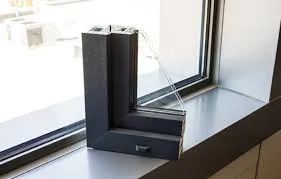Choosing the Right Caster Wheels for Smooth Sliding Door Operation and Maintenance Tips
Caster Wheels for Sliding Doors A Comprehensive Guide
Sliding doors are an excellent solution for maximizing space in both residential and commercial settings. They offer a sleek and modern aesthetic while providing ease of access and usability. However, the performance of sliding doors largely depends on the quality and functionality of the caster wheels used in their operation. In this article, we will explore the importance of caster wheels for sliding doors, the types available, and tips for choosing the right ones for your needs.
Understanding Caster Wheels
Caster wheels are small wheels placed on the bottom of sliding doors, allowing them to glide smoothly along their track. They come in various designs and materials, making them adaptable to different door types and weight capacities. The right caster wheels can significantly enhance the usability and longevity of sliding doors, making them a critical component in any sliding door system.
Types of Caster Wheels
Caster wheels for sliding doors can be categorized into several types based on their design and material
1. Material Composition Caster wheels are typically made from materials such as plastic, rubber, and metal. Plastic wheels are lightweight and often used for lighter doors, while rubber wheels provide better traction and are suitable for heavier doors. Metal wheels, while durable, can cause more wear and tear on the track over time.
2. Size and Diameter The size of caster wheels can affect the performance of sliding doors. Larger wheels can roll over imperfections in the track more easily, providing smoother operation. However, they may also require a larger space to operate.
3. Swivel vs. Fixed Swivel caster wheels allow for better maneuverability and can pivot in different directions, making them ideal for doors that require flexibility. Fixed wheels, on the other hand, move in a straight line, providing stability but less maneuverability.
Choosing the Right Caster Wheels
caster wheels for sliding doors

When selecting caster wheels for sliding doors, consider the following factors
1. Weight Capacity Ensure that the caster wheels are rated for the weight of your sliding door. Underestimating the weight can lead to premature wear or even failure of the wheels.
2. Track Compatibility Different sliding door systems have varying track designs. Make sure to choose caster wheels compatible with your specific track to ensure a smooth operation.
3. Environmental Factors Consider the environment where the sliding doors will be used. If the doors are exposed to moisture or outdoor conditions, choose wheels made from materials that resist corrosion and wear.
4. Noise Levels Rubber caster wheels tend to operate more quietly compared to plastic or metal wheels. If noise is a concern, especially in residential settings, opting for rubber wheels may be beneficial.
Maintenance of Caster Wheels
To ensure the longevity of your sliding door system, regular maintenance of the caster wheels is crucial. Keep the track clean and free from debris, as dirt can hinder smooth operation. Lubricating the wheels and track periodically can also prevent wear and improve performance.
Conclusion
Caster wheels are an integral part of any sliding door system, impacting both functionality and aesthetics. By understanding the different types of caster wheels available and considering the factors that influence their performance, you can make informed decisions that guarantee smooth and reliable operation for your sliding doors. Investing in high-quality caster wheels will not only enhance convenience but also prolong the lifespan of your sliding door system, ensuring it serves you well for years to come.
-
Wrought Iron Components: Timeless Elegance and Structural StrengthNewsJul.28,2025
-
Window Hardware Essentials: Rollers, Handles, and Locking SolutionsNewsJul.28,2025
-
Small Agricultural Processing Machines: Corn Threshers, Cassava Chippers, Grain Peelers & Chaff CuttersNewsJul.28,2025
-
Sliding Rollers: Smooth, Silent, and Built to LastNewsJul.28,2025
-
Cast Iron Stoves: Timeless Heating with Modern EfficiencyNewsJul.28,2025
-
Cast Iron Pipe and Fitting: Durable, Fire-Resistant Solutions for Plumbing and DrainageNewsJul.28,2025
-
 Wrought Iron Components: Timeless Elegance and Structural StrengthJul-28-2025Wrought Iron Components: Timeless Elegance and Structural Strength
Wrought Iron Components: Timeless Elegance and Structural StrengthJul-28-2025Wrought Iron Components: Timeless Elegance and Structural Strength -
 Window Hardware Essentials: Rollers, Handles, and Locking SolutionsJul-28-2025Window Hardware Essentials: Rollers, Handles, and Locking Solutions
Window Hardware Essentials: Rollers, Handles, and Locking SolutionsJul-28-2025Window Hardware Essentials: Rollers, Handles, and Locking Solutions -
 Small Agricultural Processing Machines: Corn Threshers, Cassava Chippers, Grain Peelers & Chaff CuttersJul-28-2025Small Agricultural Processing Machines: Corn Threshers, Cassava Chippers, Grain Peelers & Chaff Cutters
Small Agricultural Processing Machines: Corn Threshers, Cassava Chippers, Grain Peelers & Chaff CuttersJul-28-2025Small Agricultural Processing Machines: Corn Threshers, Cassava Chippers, Grain Peelers & Chaff Cutters












